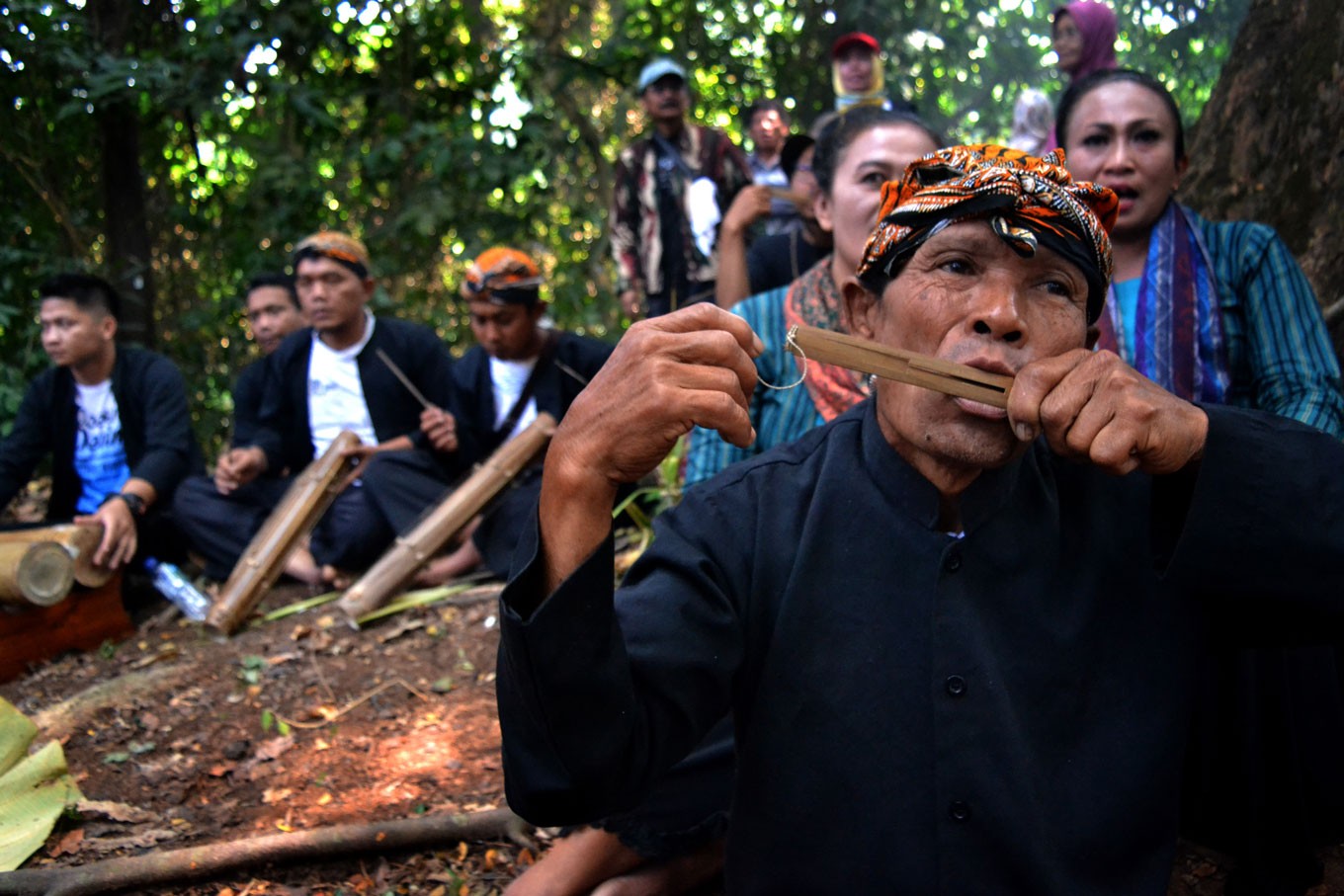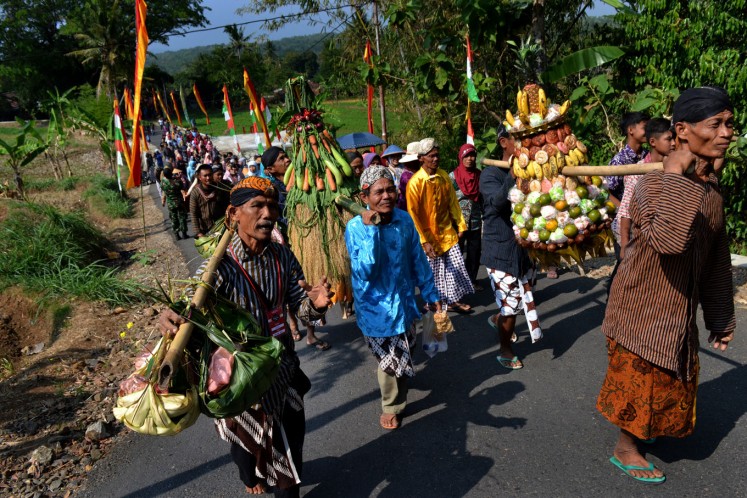Popular Reads
Top Results
Can't find what you're looking for?
View all search resultsPopular Reads
Top Results
Can't find what you're looking for?
View all search resultsBeji residents uphold tradition through Sadranan ritual
Residents of Beji village in Gunungkidul regency, Yogyakarta, perform the Sadranan Alas Wonosadi ritual, a thanksgiving tradition performed annually at harvest time.
Change text size
Gift Premium Articles
to Anyone
R
esidents of Beji village in Gunungkidul regency, Yogyakarta, have left their fields and headed to the water spring tucked in by Dukuh Duran and the Ndek River to clean the surrounding area, marking the beginning of the Sadranan Alas Wonosadi ritual, a thanksgiving tradition performed annually at harvest time.
The Sadranan ceremony is also a form of homage to their ancestors and according to local legend is derived from Dyah Ayu Rara Resmi a concubine in Majahapahit who fled from the invasion of Demak. Her sons Onggo and Lotjo are believed to be have started the community of Beji, they were the first to open the land and grow crops in the hilly area around Wonosadi forest.
After the area around the spring has been cleared, the residents bring offerings in the form of various types of food and white rice wrapped in teak leaves. Residents whose prayers from the previous year have come true will bring panggang tumpeng (roast offering), which is a whole roasted chicken offered to give thanks. Others who still have certain prayers that have not been realized will bring simpler dishes of tofu or tempeh.
Read also: Volunteers clean up Kartasura Palace site, step by step
The village elders open a series of Sadranan ceremonies by reciting prayers at the spring, which is followed by dividing the food offerings equally among the residents.
After completing the prayers together at the spring, the villagers join together to perform the procession to Wonosadi forest, passing the Sewu mountains while taking offerings including local crops and market snacks that are stacked in the form of two mountains.
Upon arriving at the peak, residents will pray again together and share the offerings.
Forests and springs are a legacy of the founders of Beji that are held sacred by local people through various traditional ceremonies.
"The essence of the Sadranan Alas Wonosadi ceremony in Beji is to be grateful for God's blessings in the form of natural wealth and as a reminder to always preserve nature, especially forests and springs, as was done by our ancestors", said Supatno, a village elder in Beji.
"Although our village is located in the karst hills, thanks to the sustainability of the forests and springs, our village has never experienced drought," Supatno added. (liz/kes)












